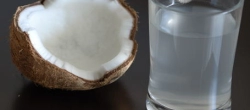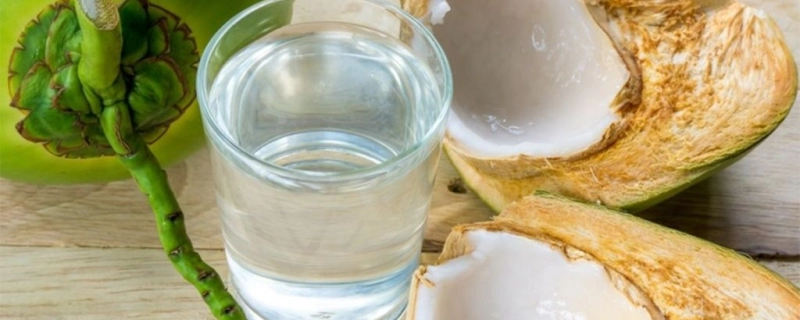Category: Beverages
Coconut Water: Taste, Uses, and Benefits
Coconut water, the clear liquid inside young green coconuts, is prized for its naturally refreshing taste and electrolyte-rich content. With a light sweetness and mild nutty undertones, coconut water has gained popularity as a hydrating beverage that offers a range of health benefits, especially after physical activity or during warm weather.
What does Coconut Water taste like?
Primary Flavor Characteristics
Coconut water has a subtle, mildly sweet flavor with a hint of nuttiness. It is often described as refreshing and slightly fruity, with a soft, silky texture. Unlike coconut milk, which is creamy and rich, coconut water is clear and light, providing a more delicate flavor profile.
Aromatic and Taste Nuances
The aroma of coconut water is fresh, slightly nutty, and lightly fruity. The taste is mild, with natural sugars that give it a gentle sweetness, balanced by a hint of saltiness from natural electrolytes, making it both hydrating and palatable.
Scientific Description of Taste and Aroma
- Aroma: Lightly nutty, fresh, and mildly fruity.
- Taste: Subtle sweetness with a hint of saltiness and nuttiness.
- Texture: Smooth and watery, with a slightly silky mouthfeel.

In-Depth Flavor Analysis of Coconut Water
Underlying Flavor Notes
Coconut water’s unique profile includes various layers:
- Natural Sweetness: The gentle sweetness is from natural sugars, making it refreshing and satisfying.
- Light Nutty Undertones: A mild nutty flavor is present, especially in fresh coconut water.
- Slight Saltiness: Coconut water contains natural electrolytes like sodium and potassium, contributing to a faintly salty taste.
- Hint of Fruitiness: There is a subtle fruity taste that adds to the overall freshness of coconut water.
Impact of Freshness on Flavor
- Fresh Coconut Water: Typically more flavorful and aromatic, with a balanced blend of sweetness and nuttiness.
- Packaged Coconut Water: Often milder and less intense due to processing, with some varieties slightly sweeter or saltier depending on additives.
Textural Qualities
Coconut water is smooth and refreshing, with a light, watery consistency that makes it easy to drink. Its slight viscosity provides a silky texture, making it more satisfying than plain water.
Culinary Uses of Coconut Water
Primary Uses
- Hydrating Beverage: Coconut water is commonly enjoyed as a natural hydrating drink, especially after exercise or in hot weather.
- Smoothies and Juices: It adds a tropical flavor and natural sweetness to smoothies and juices, complementing fruits like pineapple and mango.
- Cooking Liquid: Coconut water can be used as a cooking liquid for rice or grains, adding subtle sweetness and a hint of coconut flavor.
- Mocktails and Cocktails: Coconut water’s mild flavor pairs well in tropical cocktails or mocktails, providing hydration and a light taste.
- Desserts and Ice Pops: It is sometimes frozen into ice pops or used as a base for light, refreshing desserts.
Ideal Pairings for Coconut Water
- Tropical Fruits: Pineapple, mango, and passionfruit enhance coconut water’s tropical notes in smoothies and drinks.
- Citrus Fruits: Lemon and lime add brightness and acidity, balancing coconut water’s natural sweetness.
- Herbs: Mint and basil bring freshness, especially in cocktails and mocktails.
- Ginger and Turmeric: These spices add warmth and depth to coconut water-based drinks or smoothies.
- Chia Seeds: Add texture and nutrients to coconut water, turning it into a hydrating, fiber-rich beverage.
Health Benefits of Coconut Water
Key Nutrients and Benefits
- High in Electrolytes: Coconut water is rich in potassium, magnesium, and sodium, supporting hydration and electrolyte balance.
- Low-Calorie and Naturally Sweetened: With minimal calories and natural sugars, coconut water is a healthier alternative to sugary sports drinks.
- Antioxidants: Coconut water contains antioxidants that may help reduce oxidative stress in cells.
- Supports Digestion: The natural fiber in coconut water aids digestion and may help prevent constipation.
- May Lower Blood Pressure: Potassium in coconut water helps balance sodium levels, supporting heart health and blood pressure regulation.
Potential Precautions
- Moderation for Those Monitoring Blood Sugar: While natural, coconut water contains sugars, so those managing blood sugar levels should drink it in moderation.
- High Potassium Content: For individuals with kidney issues, the high potassium levels in coconut water may require caution.
- Possible Additives in Packaged Varieties: Some packaged coconut water may contain added sugars or preservatives, so it’s best to choose pure, unflavored varieties.

Tips for Choosing and Storing Coconut Water
How to Choose Quality Coconut Water
- Fresh vs. Packaged: Fresh coconut water from a young coconut is often more flavorful. For packaged options, look for varieties with no added sugars or preservatives.
- Color and Clarity: High-quality coconut water should be clear or slightly opaque, without a yellow tint, which can indicate oxidation or aging.
Storage Recommendations
- Refrigeration: Store opened coconut water in the refrigerator and consume it within a few days for optimal flavor.
- Freezing: Coconut water can be frozen in ice trays and added to drinks or smoothies for a refreshing twist.
Fun Facts About Coconut Water
- Natural Sports Drink: Coconut water is often called a “natural sports drink” due to its high electrolyte content, making it popular among athletes.
- Global Popularity: Coconut water has been a staple in tropical regions for centuries, valued for its hydration and nutritional properties.
- Young Coconuts Only: Coconut water is harvested from young green coconuts; as the coconut matures, the water is absorbed to form the coconut meat.